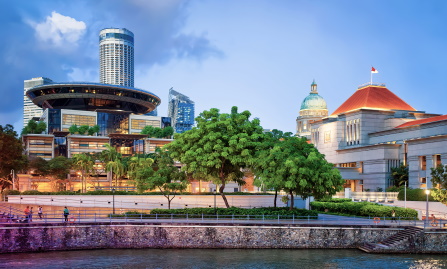'Super priority' rescue finance in Singapore

- Author:
- Arvindran Manoosegaran
- Investment Manager - Singapore
In what may prove to be a landmark decision for both of Singapore’s insolvency and litigation finance regimes, the Singapore High Court (HC) has ordered that Omni Bridgeway’s financing of an undisclosed private international arbitration be given super priority status in the context of a corporate restructuring.
‘Super priority’ rescue finance in Singapore
It marks the first time that a third-party funder has obtained a “super-priority” order of this nature since the introduction of Singapore’s new Insolvency, Restructuring and Dissolution Act (IRDA) in 2018.
Funding an arbitration matter is potentially very costly and, of course, a high-risk investment for all parties. In finding in favour of the applicant and Omni Bridgeway, the HC has set an important precedent. The order effectively provides a guarantee to a third-party funder that its investment and returns will receive priority in the recovery process resulting from a successful arbitration it has helped finance.
Value preservation
The HC’s recent ruling certainly shifts the goal posts and adds more upside for companies and their advisers who are looking to preserve value by restructuring, refinancing, and rebuilding, rather than enter liquidation.
Such a focus on value preservation strongly aligns with one of the IRDA’s policy objectives, namely the rehabilitation of distressed companies.
It remains to be seen whether the ruling in favour of the applicant and Omni Bridgeway precipitates a trickle or even a flood of new third-party rescue funding in Singapore, but the signal it has sent out will surely only enhance the country’s ambitions to become an international debt restructuring hub. Indeed, the arbitration proceedings that will be facilitated by Omni Bridgeway’s funding will be seated in Hong Kong, a testament to the international reach of the HC’s order.
As an interesting footnote to this Omni Bridgeway case, the only creditor which objected to the company’s application was, curiously, the respondent in the arbitration.
This raises an interesting question as to whether a creditor, who is also a counterparty to the proceedings to be funded, should also be permitted to participate in the company’s application to secure funding, particularly when seeking to obtain disclosure of the confidential funding agreement which it would otherwise be unable to access.
In this case, after appropriate redactions were made and sealing orders obtained to preserve the confidentiality of the funding arrangement, the HC permitted the creditor to participate, although then going on to reject the creditor’s objections and allowing the company’s application in full.